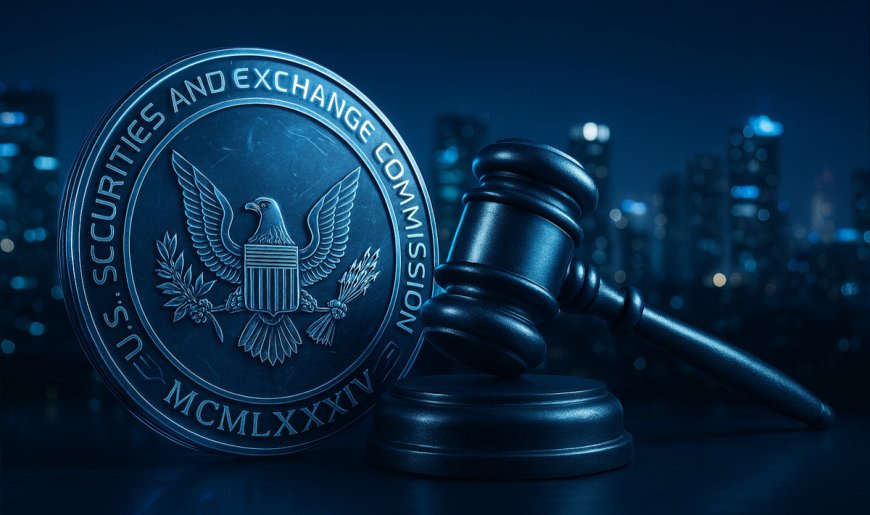Ripple and SEC Reach $125M Settlement: XRP Lawsuit Nears Conclusion
Ripple and the SEC have reached a $125M settlement, signaling a possible end to the XRP lawsuit. Discover what this means for Ripple, XRP investors, and the future of crypto regulation in the U.S.

In a potentially game-changing development for the cryptocurrency industry, Ripple Labs and the U.S. Securities and Exchange Commission (SEC) have agreed to a settlement that could bring the long-running legal battle over XRP to a close. The proposed resolution includes $125 million in penalties, with $50 million directed to the SEC and $75 million to be retained by Ripple.
#XRPCommunity #SECGov v. #Ripple #XRP BREAKING: The @SECGov has filed the Settlement Agreement Letter. https://t.co/eXuWjyQECc — James K. Filan 🇺🇸🇮🇪 (@FilanLaw) May 8, 2025
XRP Case Inches Closer to Closure
On May 8, 2025, the SEC filed a formal settlement letter publicly shared by legal expert James K. Filan, marking a pivotal moment in a lawsuit that has captured global attention since it was first filed in December 2020. Although this settlement could signal the end of the courtroom saga, legal experts warn that it doesn’t officially close the case just yet.
Crypto-focused attorney Bill Morgan noted that while the settlement is significant, the case remains technically open pending a final ruling from the court.
Four-Year Legal Battle: A Turning Point
Ripple has spent over four years defending itself against the SEC’s allegations that it raised $1.3 billion through the unregistered sale of XRP tokens, which the agency classified as securities. The case has since become a defining issue in the regulatory landscape for digital assets, with implications extending far beyond Ripple.
According to the SEC’s letter, both parties reached this agreement through “good-faith negotiations.” The settlement, already internally approved by the SEC, outlines a clear distribution of funds and an end to further legal challenges over the court’s previous ruling, one that determined XRP sales on secondary markets do not constitute securities transactions.
SEC Backs Off Appeal, Supports Efficiency
Crucially, the SEC has confirmed it will not appeal the court’s Summary Judgment Order—seen as a partial win for Ripple. The settlement seeks a court-endorsed “indicative ruling,” a move the SEC claims will promote legal efficiency and align with public interest by avoiding prolonged litigation at both district and appellate court levels.
The resolution also reflects a broader shift in the agency’s enforcement strategy. The SEC argued the deal meets all legal standards for enforcement, referencing prior case law to support its claims that the agreement is “fair, reasonable, and serves the public interest.”
Ripple’s Legal Team Speaks Out
Ripple’s Chief Legal Officer, Stuart Alderoty, shared optimism over the recent developments, stating, “The SEC has not only withdrawn its appeal against Ripple—they’ve effectively ended all pending cases against crypto firms in the U.S. Why? Because they’ve finally acknowledged what we’ve maintained all along: you can’t enforce laws that were never clearly defined.”
Alderoty emphasized the importance of regulatory clarity moving forward, calling for an end to the legal gray area that has plagued the crypto industry in the U.S. “It’s time to move forward, clean up the confusion, and get back to building,” he added.
Final Court Decision Still Pending
Despite the momentum, the case hinges on one last critical step—the court’s response. If the judge grants the indicative ruling, both Ripple and the SEC can formally withdraw their appeals, lift the existing injunction, and disburse the funds as agreed.
Such a decision would not only bring long-awaited relief to Ripple and XRP investors but could also set an informal precedent for how similar cases are handled in the future, potentially reshaping the regulatory approach to digital tokens in the United States.
As the final verdict looms, all eyes remain on the courtroom. Whether this marks the end of Ripple’s legal battle or merely the beginning of a new regulatory era for crypto remains to be seen.















